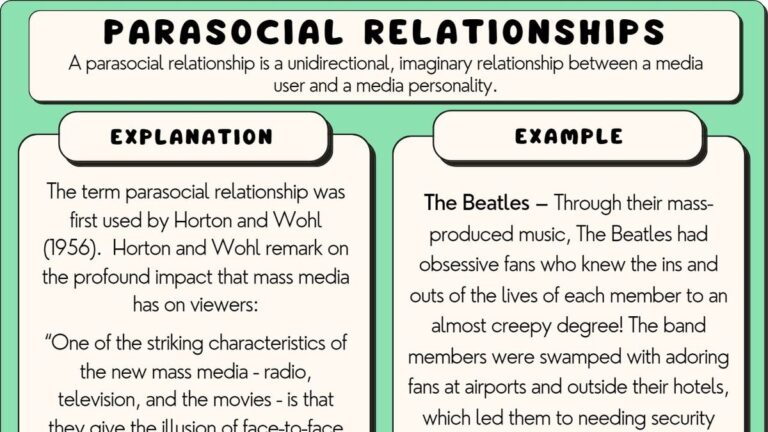Parasocial relationships, the phenomenon in which individuals form personal connections with public figures without mutual awareness, are reshaping social dynamics in the digital age. These one-sided bonds, facilitated by the accessibility of social media, provide a sense of stability for anxious individuals and contribute to identity formation. But, as psychologists warn, the potential pitfalls of parasocial relationships range from isolation to extreme behavior.
The appeal of parasocial relationships
In the age of social media, a glimpse into the lives of celebrities has never been more accessible. For example, fans of Taylor Swift will have a front row seat to her day-to-day musings, from songwriting sessions to candid behind-the-scenes footage. For many people, these insights can foster a sense of connection, an illusion of friendship, that can be comforting and empowering. However, this attraction sometimes proves dangerous.
E-cigarette advertising on social media, often endorsed by celebrities and influencers, is increasing the popularity of e-cigarettes among young users, according to a recent study from the University of York. This trend highlights the significant impact social media marketing strategies have on susceptible populations and raises concerns about the normalization of e-cigarettes among younger generations.
The dark side of parasocial relationships
Parasocial relationships can provide comfort and confidence, but they can also have negative effects. Extreme incidents involving Taylor Swift and her fans show the potential dangers of these connections, and disturbing letters and trespassing cases illustrate the fragile line between fandom and obsession. I'm emphasizing.
In some cases, parasocial relationships can replace direct social interaction, causing isolation, depression, and anxiety. Furthermore, the rise of social media has led psychologists to investigate the influence of parasocial relationships on the development of authentic interpersonal relationships and their impact on society as a whole.
The conundrum of influencer marketing
As digital platforms continue to grow, so too does the power of influencer marketing. A recent study of North Indian consumers demonstrated that beauty vloggers' authenticity characteristics and repeated parasocial interactions significantly influence consumer behavior and purchase decisions. The advertising landscape is undergoing a major shift as consumers place more trust in influencers than traditional marketing strategies.
In the UK, the Advertising Standards Authority (ASA) has set new standards, saying people with 30,000 followers should be considered celebrities on social media. The new guidelines have sparked debate among industry experts, brand gurus, and social media influencers, highlighting the importance of follower count, follower quality, and credibility when determining an influencer's celebrity status. , raised questions about the importance of reliability.
As the lines between celebrities and their audiences continue to blur, it is important to consider the potential impact of parasocial relationships in the age of social media. While these connections can promote confidence and provide a model of identity, they also risk creating a media-dependent society that relies on media consumption for social fulfillment.
Ultimately, the onus is on both influencers and consumers to navigate this complex situation with care and consideration. As the digital world evolves, understanding the complexity of parasocial relationships will be essential to fostering a healthier and more balanced society.


